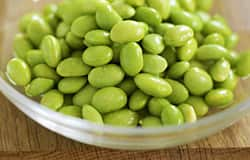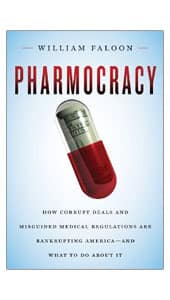- Science & Research
- Science News
- Newsletter
- 2011
- December 16

Newsletter
Newsletter
Soy Offers Hope In Treatment Resistant Prostate Cancer
Soy offers hope in treatment-resistant prostate cancer
Friday, December 16, 2011. The results of a pilot study published in the November, 2011 issue of the Southern Medical Journal suggest a benefit for soy in men whose prostate cancer failed to respond to radiation or surgery. The success of prostate cancer therapy is evaluated by measuring a protein known as serum prostate specific antigen (PSA). A rise in PSA following radiation or surgery for prostate cancer indicates treatment failure. An option for these patients is androgen deprivation therapy which reduces testosterone (a hormone that may increase the growth of prostate cancer); however, the treatment has significant side effects and is not effective for all who use it. Monika Joshi, MD and her colleagues at Pennsylvania State University enrolled ten men with treatment-resistant prostate cancer that had not metastasized, and assigned them to three servings of soy per day for two years, during which PSA levels were monitored. After 24 months, half of the men showed a response to soy with temporary or permanently declining PSA levels or stable PSA levels. Of three subjects who were being treated with androgen deprivation therapy and continued to have rising PSA levels, one responded to soy, while four of the remaining seven showed favorable responses. The researchers remark that soy may reduce PSA via a reduction in the expression of the androgen receptor and other mechanisms. "Our findings are fairly congruent with what has been described in the literature on the use of this modality in prostate cancer," the authors write. "We also show that soy can provide benefit in castration-resistant prostate cancer. Our clinical experience suggests that soy supplementation using commercially available soy products can have durable beneficial effects on PSA levels and PSA kinetics in some men with prostate cancer." "The results from Pennsylvania State University appear consistent with a considerable amount of published research showing that soy may help to prevent prostate cancer and may be useful in its treatment," noted oncologist Omer Kucuk, MD, who is Georgia Cancer Coalition's distinguished cancer scholar and chief of genitourinary medical oncology at Emory University's Winship Cancer Institute. "For men unresponsive to surgery and radiation for prostate cancer, it is critically important to find androgen deprivation therapy alternatives, such as soy as a dietary intervention. While this study is small, it's important because it takes place in real-life conditions in a clinical setting." | ||||||||||||||||||||||||||||||||||||||||
 | ||||||||||||||||||||||||||||||||||||||||
| ||||||||||||||||||||||||||||||||||||||||
 | ||||||||||||||||||||||||||||||||||||||||
| ||||||||||||||||||||||||||||||||||||||||
| ||||||||||||||||||||||||||||||||||||||||
UC-II® is a registered trademark of InterHealth Nutraceuticals, Inc. U.S. Patent Nos. 5,645,851, 5,637,321, 5,529,786, 5,750,144, 7,083,820, EP1485906 B1 and worldwide patents pending. AprèsFlex™ is a trademark of Laila Nutraceuticals exclusively licensed to PL Thomas – Laila Nutra LLC. International patents pending.
The latest news on aging, nutrition, and vitamins
Lab
Testing
How Life Extension lab testing works









